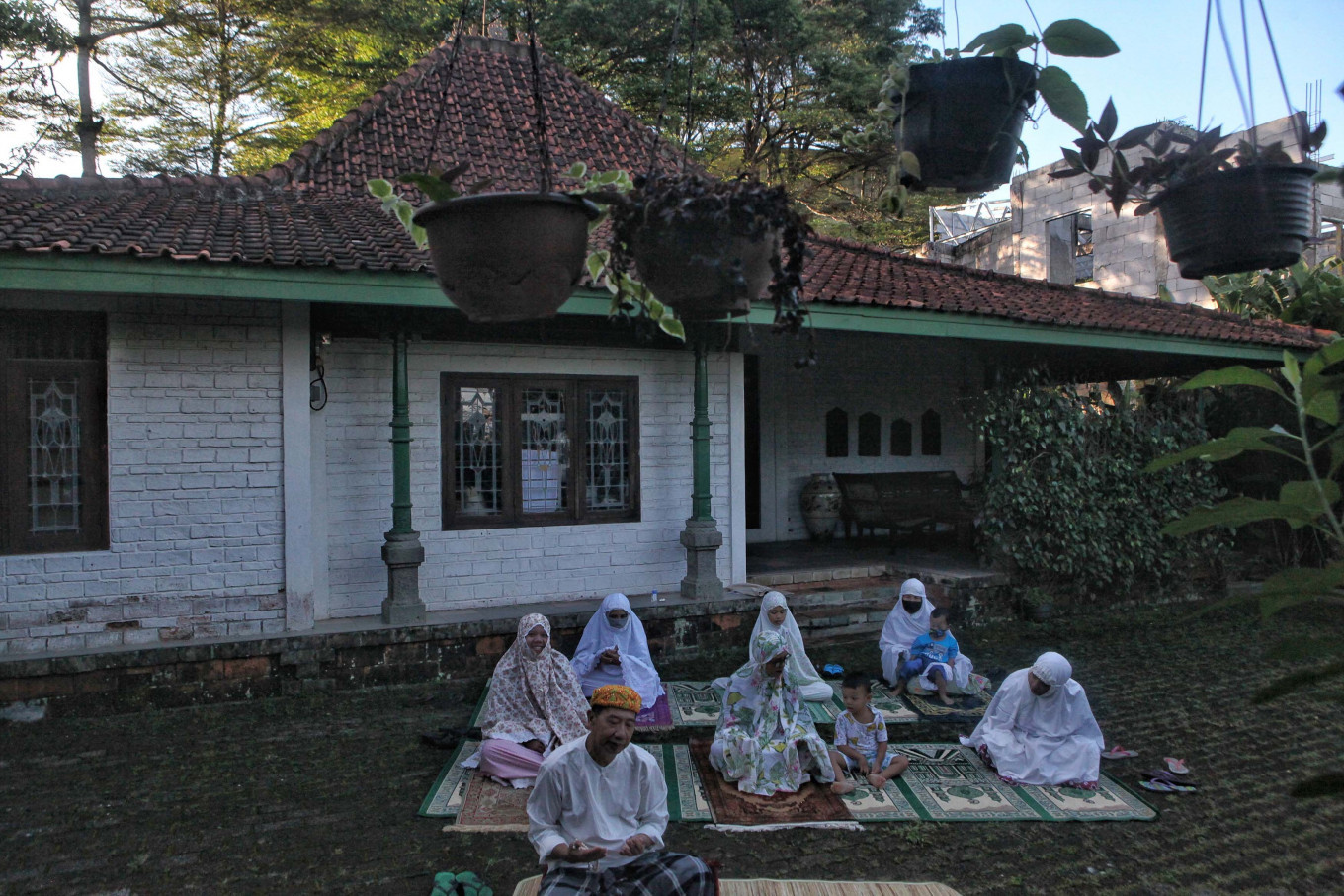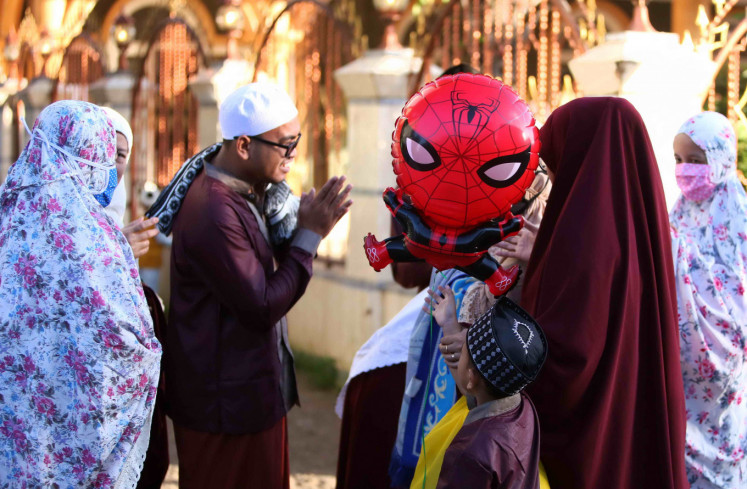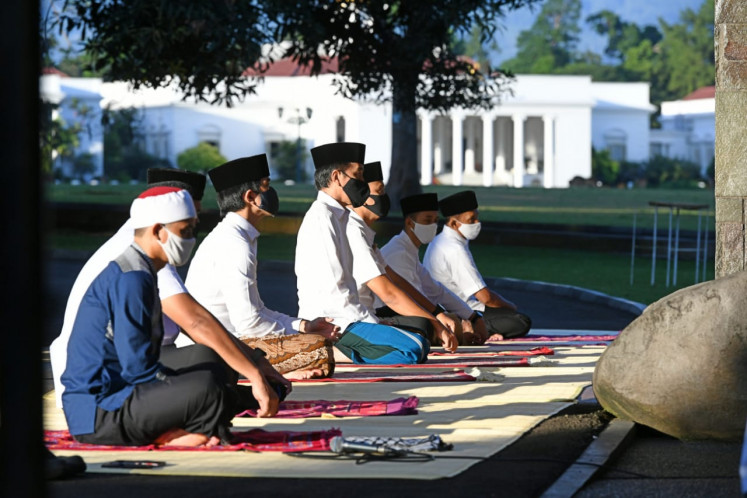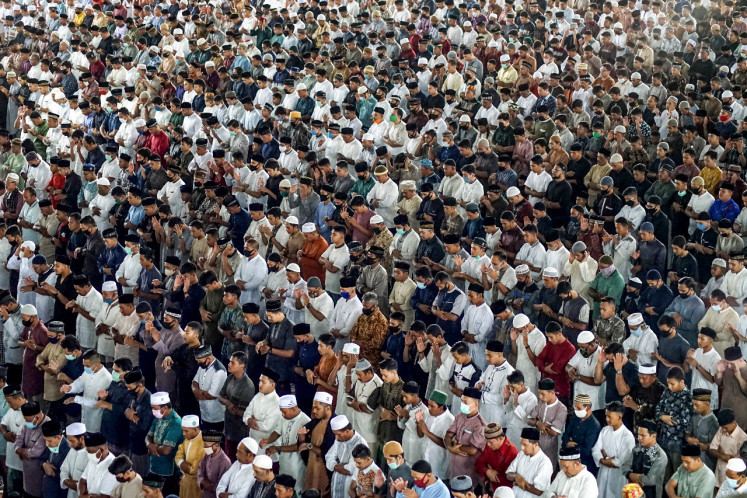
Millions of Indonesians celebrate Eid under social restrictions
by Made Anthony IswaraMillions of Indonesians are celebrating the most festive time of the year in the country under partial lockdown. Those praying and celebrating at home say they find solace in solemn and modest virtual festivities, but others infringe physical distancing orders.
Private-sector employee Risti Oktavisena, 28, decided to stay at her rooming house and call her relatives for a silahturahmi (friendly meeting) to comply with the government’s stay-at-home order. Still, the pandemic has not changed how she interprets the meaning of Idul Fitri.
“In fact, the pandemic has actually made this year’s Idul Fitri more solemn, because even though we cannot directly do silahturahmi with family and relatives, we can still feel the warmth of togetherness through our devices when we express our sincere apologies,” Risti said.
Food galore, big family gatherings and mass prayers used to be the norm for Idul Fitri celebrations in Indonesia, a two-day national holiday that succeeds a monthlong fasting period for Muslims in the Muslim-majority nation.

This year, however, the Indonesian Ulema Council and major Islamic group Muhammadiyah have advised Muslims in the country to avoid Idul Fitri prayers in large congregations at mosques to steer clear of infections. More than 22,000 people have tested positive for COVID-19 in Indonesia, with 1,391 dead, as of Monday.
President Joko “Jokowi” Widodo performed Idul Fitri prayers on Sunday with his family and a few aides in front of the Bayurini Pavilion of Bogor Palace in West Java. Meanwhile, the Religious Affairs Ministry and the Istiqlal Mosque held a virtual takbiran (chanting of “Allahu Akbar”) on the eve of Idul Fitri, instead of the usual way of conducting the event at mosques and on the streets involving crowds.

Indonesian Ulema Council (MUI) deputy chairman Muhyiddin Junaidi told The Jakarta Post on Monday that the pandemic should compel people to be more independent in praying at home, led by the head of the family as the imam of the household.
“Amid the COVID-19 crisis, we should celebrate Idul Fitri with utmost modesty. Don’t show off your wealth. Instead, we should have a sense of solidarity for our brothers and sisters,” said Muhyiddin.
He urged people to be optimistic as people can obtain hikmah (wisdom) from facing the current pandemic.
“Don't neglect worship just because there is a disaster. Worship should continue as usual but with regard to health protocols,” Muhyiddin said, adding that people “have to be able to make changes and follow changes" by using technology.
Private-sector employee Aprilian Eka Prananca, 26, said he felt “more devoted” during his Idul Fitri prayers at home, as it allowed him to lead the prayer alongside his wife instead of following directions in mosques.
“The Idul Fitri celebration is different, but its essence is the same,” Aprilian said. This year, he had only briefly visited some of his relatives to drop off and exchange gifts but avoided any physical contact while keeping his mask on for the festivity. Before, his family would usually gather in one place, have sleepovers and cook together for the big day.
However, not all worshippers follow physical distancing restrictions during the celebrations, with some turning to smugglers and fake travel documents to get around bans on the annual end-of-Ramadan travel, AFP reported, which could send infection numbers soaring.

"I did feel worried, but as a Muslim, I still had to perform mass Eid prayers as a form of gratitude to Allah," one worshipper, Arsi, told AFP.
If you want to help in the fight against COVID-19, we have compiled an up-to-date list of community initiatives designed to aid medical workers and low-income people in this article. Link: [UPDATED] Anti-COVID-19 initiatives: Helping Indonesia fight the outbreak